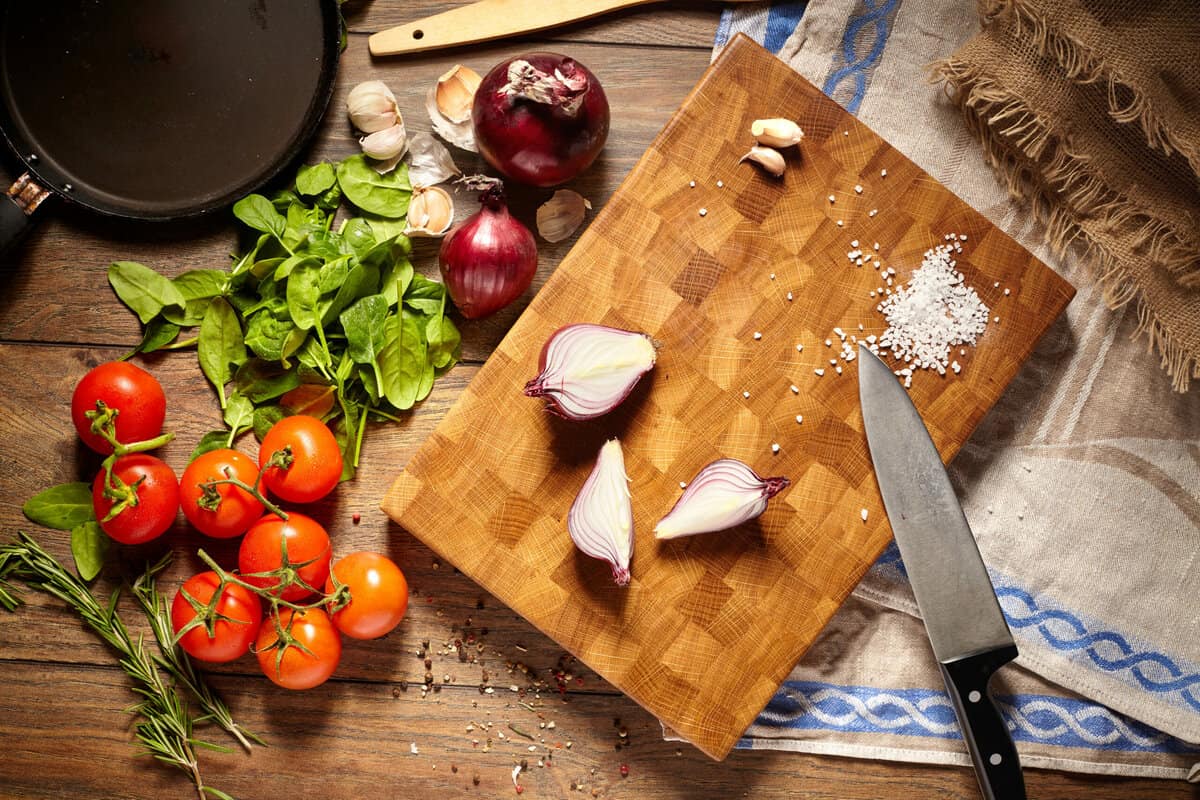When we think of healthy cooking, olive oil often comes to mind. But have you ever asked yourself, 'why you shouldn't cook with olive oil'? Though olive oil, particularly extra virgin olive oil, has many benefits, using it for cooking might not be as advantageous as you think.

The Myth of Olive Oil's Stability
Olive oil is often recommended for its heart-healthy properties, but when it comes to cooking, especially at high temperatures, it might not be the best choice. One of the primary reasons why you shouldn't cook with olive oil is that it has a relatively low smoke point compared to other oils. Learn more about the smoke point.
What is the Smoke Point?
The smoke point of an oil is the temperature at which it starts to break down and produce smoke. When olive oil reaches its smoke point, it can degrade and release potentially harmful compounds. This is problematic because it can compromise not only the flavor but also the nutritional value of your food.

Health Concerns When Cooking with Olive Oil
Another important aspect to consider when discussing why you shouldn't cook with olive oil is the potential health risks. When olive oil surpasses its smoke point, it can produce toxic compounds such as aldehydes. These compounds have been linked to various health issues, including cancer and neurodegenerative diseases. Find out more about health risks.
Oxidative Stress and Free Radicals
High-heat cooking can also lead to oxidative stress. The antioxidants in olive oil, which are beneficial at lower temperatures, can become pro-oxidants when exposed to high heat. This means they might contribute to the production of free radicals, undermining the health benefits typically associated with olive oil. Check free radicals.

Culinary Impact: Flavor and Texture
Another reason why you shouldn't cook with olive oil is the effect on your dishes' flavor and texture. Olive oil has a distinctive taste that can become unpleasantly bitter when overheated. Moreover, its chemical structure is not ideal for frying or high-heat cooking, which can result in subpar culinary results. This article highlights culinary effects.
Better Alternatives for Cooking
While olive oil adds a delightful flavor when used in salads or as a finishing oil, other oils are better suited for cooking. Here are some alternatives:
- Canola Oil: With a higher smoke point, canola oil is a versatile option for various cooking methods. Learn more Canola Oil.
- Avocado Oil: This oil has one of the highest smoke points, making it perfect for frying and high-heat cooking. Understand better about Avocado Oil.
- Coconut Oil: Known for its stability, coconut oil is excellent for baking and sauting. Deep dive into Coconut Oil.

Environmental and Ethical Considerations
When pondering why you shouldn't cook with olive oil, it's also worth considering the environmental and ethical implications. Olive oil production, especially when not done sustainably, can contribute to deforestation, water scarcity, and biodiversity loss.
Sustainable Cooking Practices
Opting for cooking oils that are sustainably sourced and have a lower environmental impact can contribute to more ethical culinary practices. Avocado and canola oils, when sourced responsibly, can be more sustainable options compared to traditional olive oil. For more check this sustainable cooking.
Conclusion
In summary, while olive oil excels as a salad dressing and finishing oil, it's not the best choice for cooking at high temperatures. The reasons why you shouldn't cook with olive oil encompass health concerns, culinary drawbacks, and environmental considerations. By choosing other oils like canola, avocado, or coconut oil, you can enjoy a tastier, healthier, and more sustainable cooking experience. Here's more about alternative oils.
FAQ
Is olive oil unhealthy when cooked?
When olive oil is heated past its smoke point, it can produce harmful compounds and lose its nutritional value. It's best used at lower temperatures. Read more on olive oil health.
What are the best alternatives to olive oil for cooking?
Canola oil, avocado oil, and coconut oil are excellent alternatives, offering higher smoke points and greater stability at high temperatures. Discover more on oil alternatives.
Does olive oil lose its flavor when cooked?
Yes, olive oil can become bitter and lose its distinctive flavor when overheated, making it less desirable for cooking purposes. For related topics, click olive oil flavor.
As an Amazon Associate, I earn from qualifying purchases.






Leave a comment
This site is protected by hCaptcha and the hCaptcha Privacy Policy and Terms of Service apply.